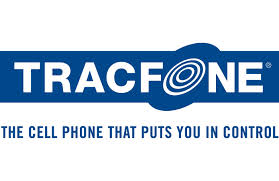The Federal Trade Commission (FTC) has fined TracFone — the largest prepaid mobile provider in the U.S. — $40 million for telling customers that they have “unlimited” data service, then throttling speeds when they’ve reached their fixed 30-day limit.
The agency said in its statement today that TracFone “deceived millions of consumers with hollow promises of unlimited data service.” (Ouch — Uncle Sam sounds angry.)
“The issue here is simple: When you promise consumers ‘unlimited,’ that means unlimited,” said Jessica Rich, director of the FTC’s Bureau of Consumer Protection, in the statement. “This settlement means that … customers will be able to get money back from the company for services the company promised but didn’t deliver.”
The FTC’s complaint alleges that since 2009, TracFone has advertised prepaid monthly mobile plans for about $45 per month with “unlimited” data.
TracFone marketed “unlimited” plans under its name brands through television and radio commercials, print advertisements, in-store displays, and other media.
For some customers who reached their data limit, TracFone even terminated all services — talk, text, and data. Customers who got throttled often saw data speed slowdowns of 60 percent, and sometimes up to 90 percent.
The FTC says TracFone varied its data limits, but generally slowed data service when a customer used 1 to 3 gigabytes, and suspended data service outright at 4 to 5 gigabytes.
When consumers approached TracFone’s limits, the FTC says, they would often receive a call that warned them for the first time about their “excessive data usage” but did not disclose TracFone’s data limits.
So, beginning today, consumers who had a Straight Talk, Net10, Simple Mobile, or Telcel America unlimited plan before January 2015 can visit http://ftc.gov/prepaidphones to file a claim for a refund, the FTC says.
The FTC says there is no technical reason for TracFone to limit data, such as to reduce network congestion; rather, internal documents showed that the company’s data policies were created to “reduce the high costs associated” with providing the unlimited data it had promised.
Beginning in September 2013, TracFone began to make some disclosure of its throttling practices for its “unlimited” programs, but those disclosures were often not clear and conspicuous, according to the FTC’s complaint. In many cases, the disclosures were in very small print or on the back of packages or cards where consumers were likely to miss them.
In addition to the $40 million in consumer refunds that it must pay under its settlement with the FTC, TracFone is prohibited from making further deceptive advertising claims about its mobile data plans, and must clearly and conspicuously disclose any limits on the speed or quantity of its data service.
This is the second case brought by the FTC against a mobile provider for failing to live up to its promises of unlimited data; the Commission’s case against AT&T is currently in litigation.
VentureBeat's mission is to be a digital town square for technical decision-makers to gain knowledge about transformative enterprise technology and transact. Learn More

